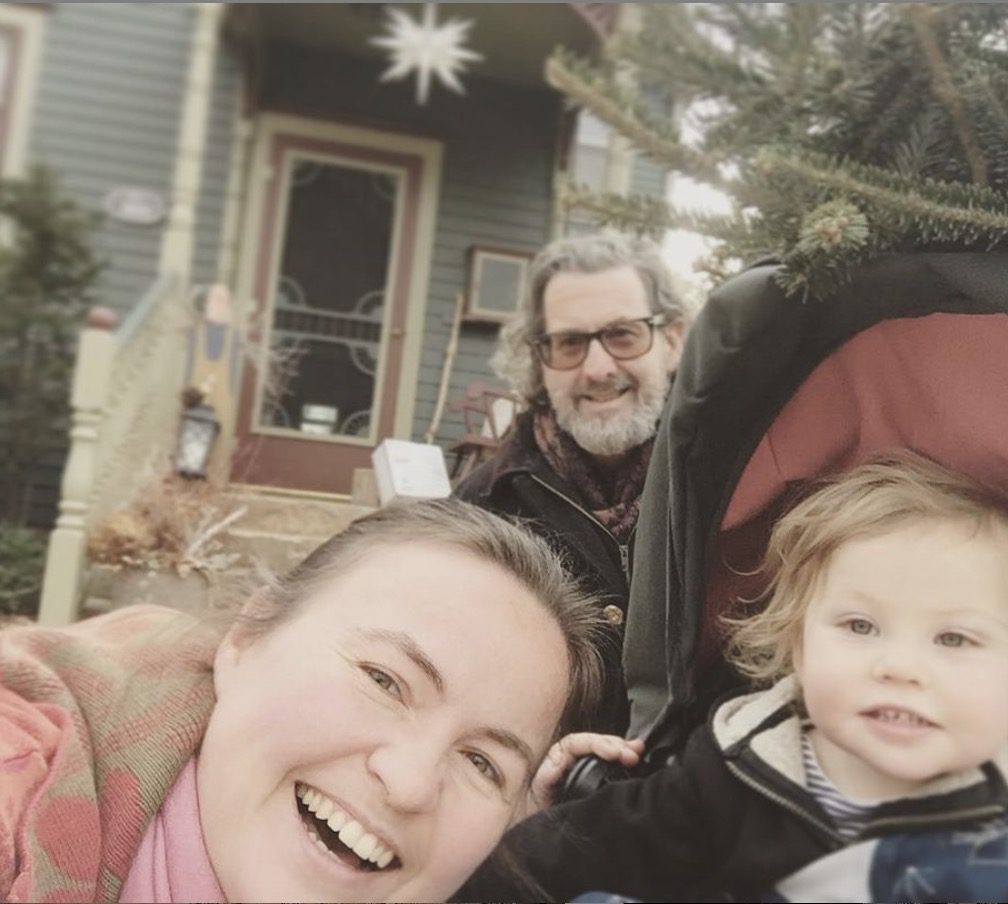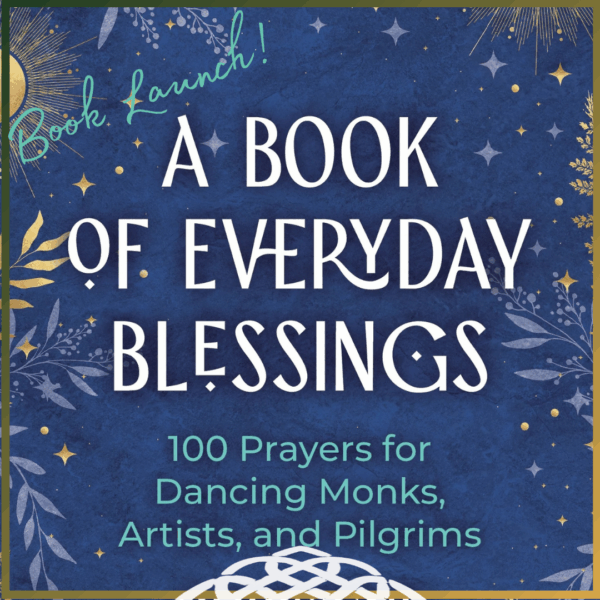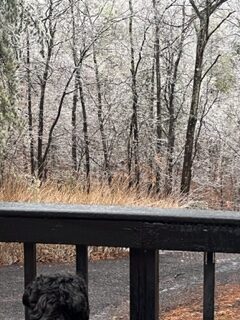I am delighted to share another beautiful submission to the Monk in the World guest post series from the community. Read on for Almut Furchert’s reflection, “Contemplating the Poignancy of Motherhood: A Mother’s Day Reflection.”
Some experiences are universally shared, like the pain and joy of understanding yourself. Others are reserved only for some to experience. For instance the odd feeling when new life first stirs in your womb. Before, I only listened to mothers’ stories of having born, tended to, worried about or lost a child. But only when it happened to me could I walk into those feelings. Now I also know the loss a mother endures when the tender fruit of new life leaves her body before its time. Like after a flood that washes away the future, one remains behind in pain, but also in awe of how one’s emptied body restores itself. Since that time, I wonder in new ways about the magic and vulnerability of motherhood and what it has to teach us about our spiritual life.
Having born, nurtured, and lost our children, mothers know from experience about hope and fear. We have contemplated the big questions of being and non-being not only with our minds, but also with our bodies. Being granted the ability to give life, we are also confronted with the fragility and insecurity of all life, and the joys and sorrows motherhood carries in its core.
Though the world tells us to have a “happy” mothers day, for many the day comes with a bittersweet undertone. No happy children posting happy messages. Some have lost children before they could birth them, some lost them later, to death or to life. All mothers are also daughters, some cherishing, some mourning, some still struggling with their own mothers.
I think about a client who grew up with a cold and rejecting mother, and now suffers his own lack of warmth. Or about a woman who was given away as a baby, still searching, and longing, for her birth mother. There was no love, no appreciation, no empathy which could heal that wound of a lost mother, until she found, held and was at last held by her birth mother.
There is in all of us, sons and daughters, a deep longing for our motherly home. HILDEGARD OF BINGEN has seen this deep longing embedded at the heart of human creation: In one of her stunning illuminations she pictures the soul’s journey from being embodied in her mother’s womb to her search for her spiritual home to set up her tent. We are born in a unity of body and soul, with our original wisdom (“sophia”) folded like a tent inside us.
Hildegard speaks in poignant terms of the longing of the soul, and its challenges and lamentations on the way. Being faced with the pain of a bodily life the soul cries out to mother Zion: where shall I flee?
But instead of a quick answer Hildegard gives room for the soul’s lamentations. Because as wisdom teachers know, the answer lies in the contemplation of our human lot itself. In doing so we are reminded of our Divine origin, of being living breath and body all-woven-together, able to transcend our sufferings and to trust ourselves to life anew. Do not forget, my daughter, says mother Zion in Hildegard’s vision, that the giver of all life has given your soul wings to fly above all obstacles.
Though Hildegard was never a birth mother she has become a mother to many. A foremother, a mother in spirit, an example of motherhood, a strong symbol for the mother archetype. For her, motherhood has always also been a powerful metaphor for the life force of all creation. Birthing is at the center of her cosmology as well as her spiritual teaching.
Thus, we do not need to be mothers, not even women, to participate in the mystery of birth. We all have the spiritual ability to birth new life, to create and recreate. We all know about the “birthing pain” whenever wisdom or new insight is born in us, know the joy which ensouls us when we are first pregnant with and then give birth to the holy within us. As we also know the fragility of this journey and the places of pain and loss within.
And like mothers we can offer comfort and warm embrace to our own and to other’s struggling souls.
And if this mothers day
has come to you
with all its ambivalence
joy and sorrow
tend patiently to each
like young green shoots growing
quietly
towards the sun
under dead layers of leaves.

Almut Furchert, Dr. phil., Dipl. Psych., is a German-American philosopher of religion, existential counselor, teacher, retreat leader, dancing monk and weary pilgrim. A mother of a toddler she is also the woman behind CloisterSeminars.org where she and her husband share their passion for wisdom teachings and contemplative practice. Having grown up as a pastor’s child in the former East Germany, Almut teaches and writes in the intersection of psychology, philosophy and spirituality on both continents (e.g. on Søren Kierkegaard and Hildegard of Bingen).


